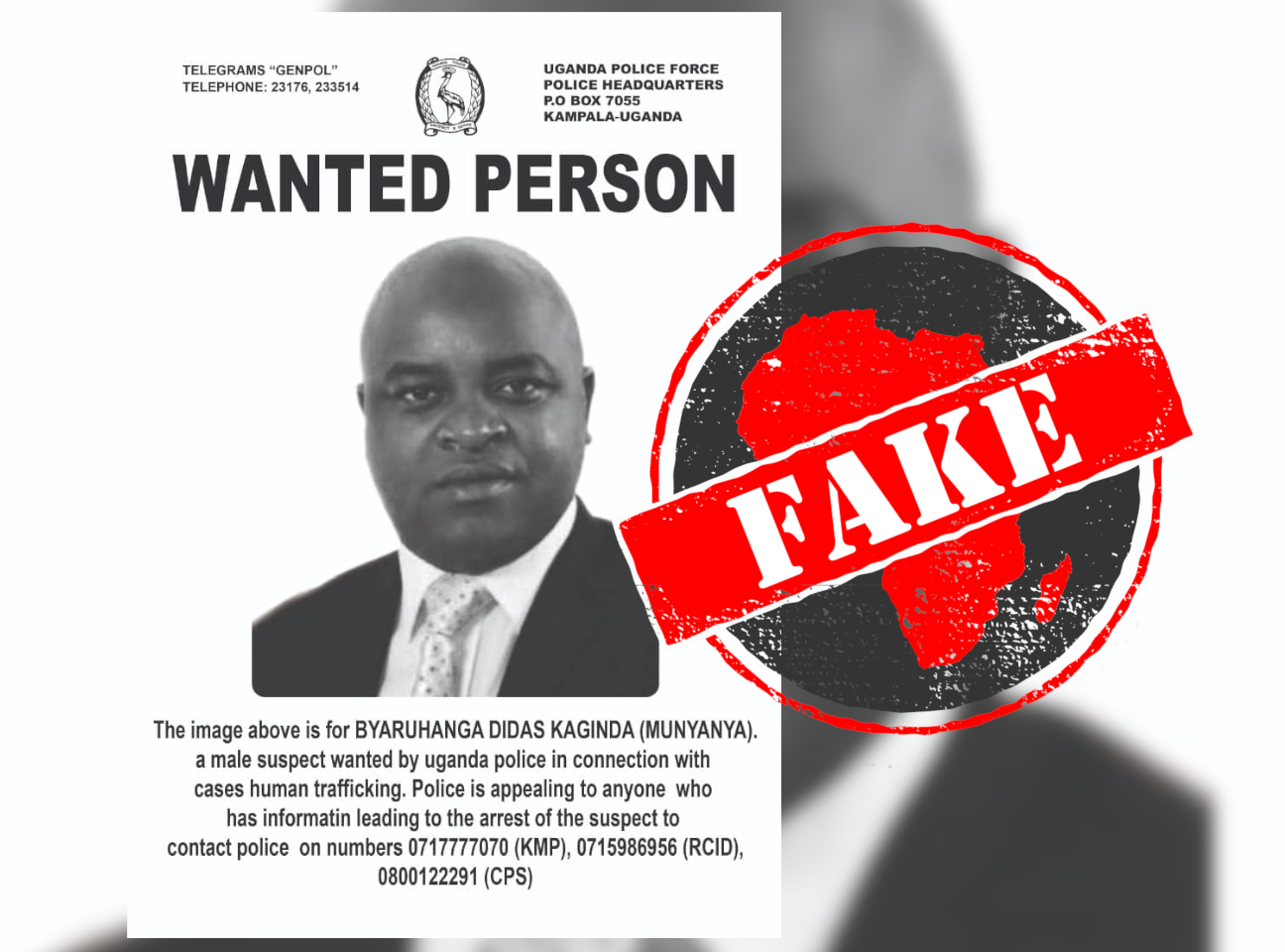IN SHORT: Did Ugandan politician Byaruhanga Didas Kaginda go from running for parliament to running from the police? No, a “wanted” poster of him is fake.
A graphic posted on Facebook on 19 November 2022 claims that a parliamentary candidate in Uganda’s 2021 elections is now wanted for human trafficking.
Headlined “WANTED PERSON”, the graphic shows a photo of Byaruhanga Didas Kaginda.
Poorly written text below reads: “The image above is for BYARUHANGA DIDAS KAGINDA (MUNYAYA) a male suspect wanted by Uganda police in connection with cases human trafficking. Police is appealing to anyone who has informatin leading to the arrest of the suspect to contact police on numbers 0717777070 (KMP), 0715986956 (RCID), 0800122291 (CPS).”
Kaginda vied for the Ruhinda South constituency seat during the 2021 elections. An independent candidate, he attracted 389 votes. The winner was Mugabe Dononzio Kahonda of the ruling National Resistance Movement, with 16,551 votes.
Ugandan authorities have recently warned that human trafficking was on the rise.
The US state department’s 2022 Trafficking in Persons Report: Uganda records that the Ugandan government had said it investigated 421 incidents of human trafficking involving 501 suspects. This is nearly double the 214 incidents reported in 2020.
In 2021 the government began prosecuting alleged traffickers in 403 cases, compared to 202 cases in 2020.
Of the 403 cases, at least 256 involved sex trafficking. Another 103 involved forced labour, while 44 involved some other form of exploitation. Of the total, 357 occurred in Uganda and 46 abroad.
A wanted poster is distributed to let the public know of a person the police want to arrest.
But is this poster legitimate? Was a candidate for parliament, which makes law, fingered for serious crime?

‘Fake wanted poster maliciously posted on digital platforms’
The Uganda Police Force took to its official Twitter and Facebook accounts to dismiss the poster as fake.
“We would like to request the public to disregard a FAKE wanted poster, that was maliciously posted on several digital platforms, to purposely tarnish the image of one Byaruhanga Didas Kaginda. The perpetrators claim he is wanted by police at KMP, for alleged human trafficking,” the police force wrote.
KMP stands for Kampala Metropolitan Police.
“The wanted poster is FAKE and has no source or authority. All wanted persons are authorized by the office of the Inspector General of Police. The matter is now being investigated at KMP, to establish the perpetrators behind the FAKE wanted poster."
Republish our content for free
For publishers: what to do if your post is rated false
A fact-checker has rated your Facebook or Instagram post as “false”, “altered”, “partly false” or “missing context”. This could have serious consequences. What do you do?
Click on our guide for the steps you should follow.
Publishers guideAfrica Check teams up with Facebook
Africa Check is a partner in Meta's third-party fact-checking programme to help stop the spread of false information on social media.
The content we rate as “false” will be downgraded on Facebook and Instagram. This means fewer people will see it.
You can also help identify false information on Facebook. This guide explains how.


Add new comment